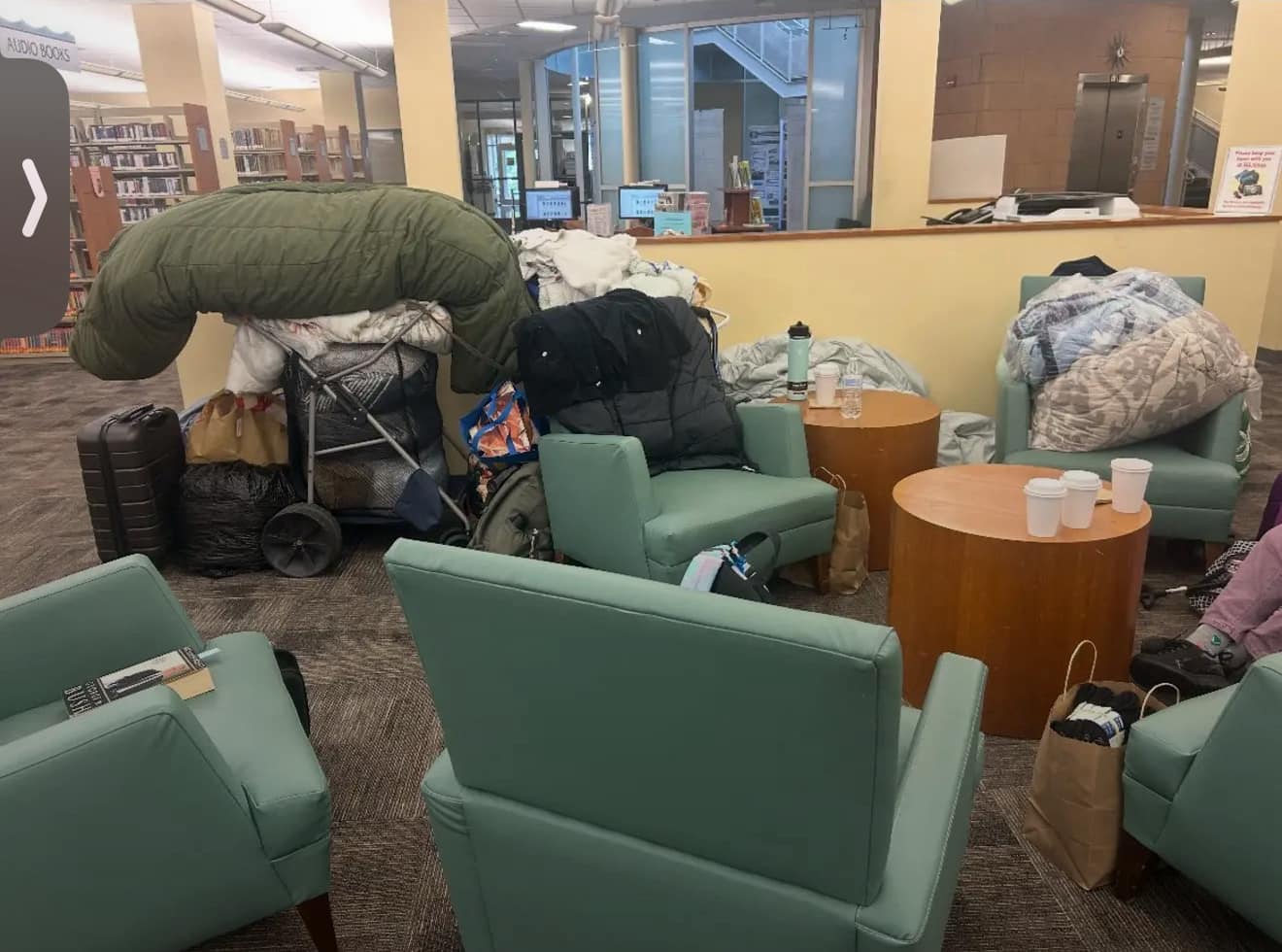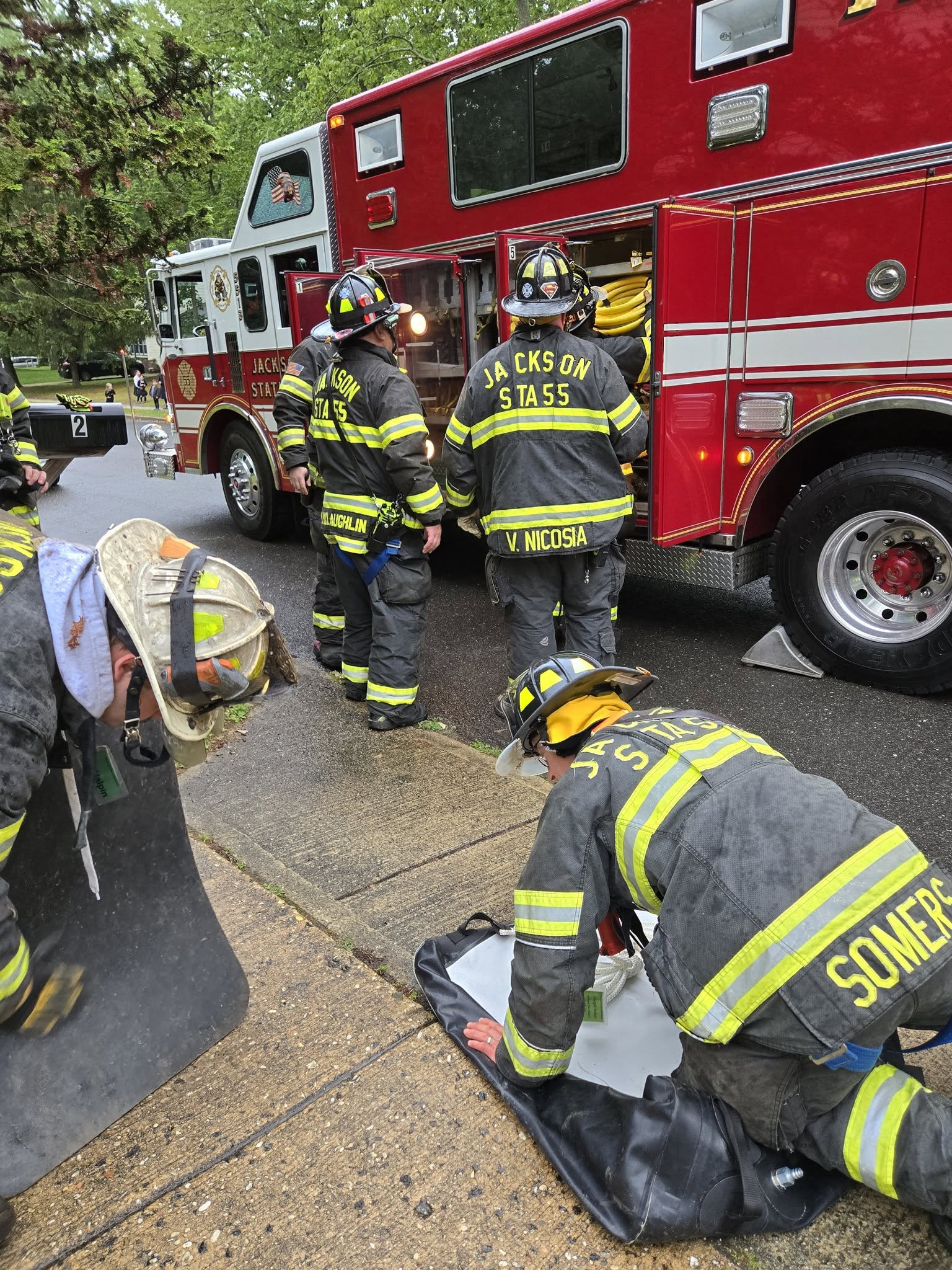The Ocean County Library in Toms River, once a cherished sanctuary for learning and research, has become a shadow of its former self.
County officials, in their decision to allow Jon Bon Jovi’s JBJ Soul Kitchen to operate a pop-up cafe within the library’s walls, have effectively transformed this public institution into a de facto homeless shelter and soup kitchen.
While the JBJ Soul Kitchen, launched in February 2025, aims to address hunger and connect people to resources, its presence in the library has brought unintended consequences that threaten the safety and well-being of the community.
The decision by the Ocean County Board of Commissioners to approve and renew the lease for the Soul Kitchen’s pop-up, originally set to run through May, has drawn sharp criticism from Toms River Mayor Daniel Rodrick.
He argues that the initiative has turned the library into a magnet for homeless individuals, many of whom are bused in from outside the township, exacerbating local challenges.
The library, meant to serve as a resource for county employees, courthouse staff, local families and students from Toms River High School South, is now a hub for those struggling with homelessness, mental instability, and addiction.
This shift has led to a troubling rise in crime and public health concerns in the heart of downtown Toms River.
Recent incidents paint a grim picture.
In the past few weeks alone, two drug-dealing arrests have been reported outside the library, signaling a surge in illicit activity.
Reports of drug overdoses, including a fatal one on the library steps, underscore the growing dangers.
Photos circulating in the community show homeless individuals bringing their belongings into the library, turning a place of study into a makeshift shelter. Perhaps most shocking is the discovery of a toilet seat outside a back door, covered in urine and feces—a stark symbol of the library’s deteriorating condition.
Homeless encampments have sprouted in the bushes, on the front steps, and in the nearby municipal parking garage, further eroding the sense of safety for residents.
Photos posted by Just Believe, Inc., which collaborates with the JBJ Soul Kitchen show the reality of the situation.
The impact is felt most acutely by vulnerable groups, including high school students who frequent downtown for lunch on weekday afternoons. These students, along with families and library patrons, must now navigate an environment where intoxicated or mentally unstable individuals are a common sight.
Mayor Rodrick has voiced the concerns of many, stating, “Mothers shouldn’t have to walk through large gangs of intoxicated and mentally ill men with their children to borrow a book.” The library, once a safe haven for learning, is now a place where parents hesitate to bring their children.
Rodrick has told Toms River families to consider using the Brick branch instead for the forseeable future, until county officials cease using the location as a homeless shelter.
The dangers posed by concentrating services for a population struggling with addiction and mental health issues in a public library are not unique to Toms River.
A recent tragedy in Salem, Oregon, where a man stabbed 11 people, including two staff members, at the Union Gospel Mission homeless shelter on June 1, serves as a chilling reminder of the risks.
The suspect, described as erratic and wielding an eight-inch knife, left five victims with serious injuries. While not all homeless individuals are violent, incidents like this highlight the potential for instability when services are provided without adequate oversight or security measures.
In Toms River, the lack of a dedicated shelter in Ocean County—one of the few New Jersey counties without one—forces the library to bear the burden of a systemic problem, putting both patrons and the homeless population at risk.
County officials, including Commissioner Jennifer Bacchione, have defended the Soul Kitchen, emphasizing that it is not a traditional soup kitchen, as it requires payment or volunteering for meals.
However, a recent visit to the Soul Kitchen revealed that the requirement to work in return for food is not necessarily a requirement if meals have been paid for though donations, or others paying it forward.
Since our opening in early February, JBJ served
over 2,600 meals
to the Toms River community. Of those meals, 45% were covered by donations, while 55% were earned through volunteering.
Yet this distinction does little to address the broader issue: the library is not equipped to handle the influx of individuals drawn by the program, many of whom face complex challenges like addiction and mental illness.
While the JBJ Soul Foundation’s mission to combat hunger and homelessness is commendable, the library is an inappropriate venue for such services. The county’s plan to increase sheriff’s deputies at the library is a reactive measure that fails to address the root problem: the need for a dedicated, well-funded facility to support the homeless population away from public spaces meant for education and community engagement.
The library should be restored to its original purpose—a safe, welcoming space for learning and growth. Addressing homelessness requires compassion, but it also demands practical solutions, such as a licensed shelter with proper resources and security. Ocean County cannot continue to offload this responsibility onto a public library, compromising the safety of its residents and the well-being of its most vulnerable.
It’s time for county leaders to act, not with temporary fixes or good intentions, but with a comprehensive plan that respects both the community and those in need, but also provides services to local residents. As Mayor Rodrick stated, his town should not be used as a dumping ground for the state’s homeless population so a few local non-profits can get subsidized per head.
Ocean County acknowledged the uptick in crime, leading the Sheriff’s Department to post officers in and around the library. Lighting on some county buildings nearby has been increased and young mothers alone with their children are sometimes advised not to walk to the parking deck behind the library alone while drug deals and erratic behaviors are present outside.




